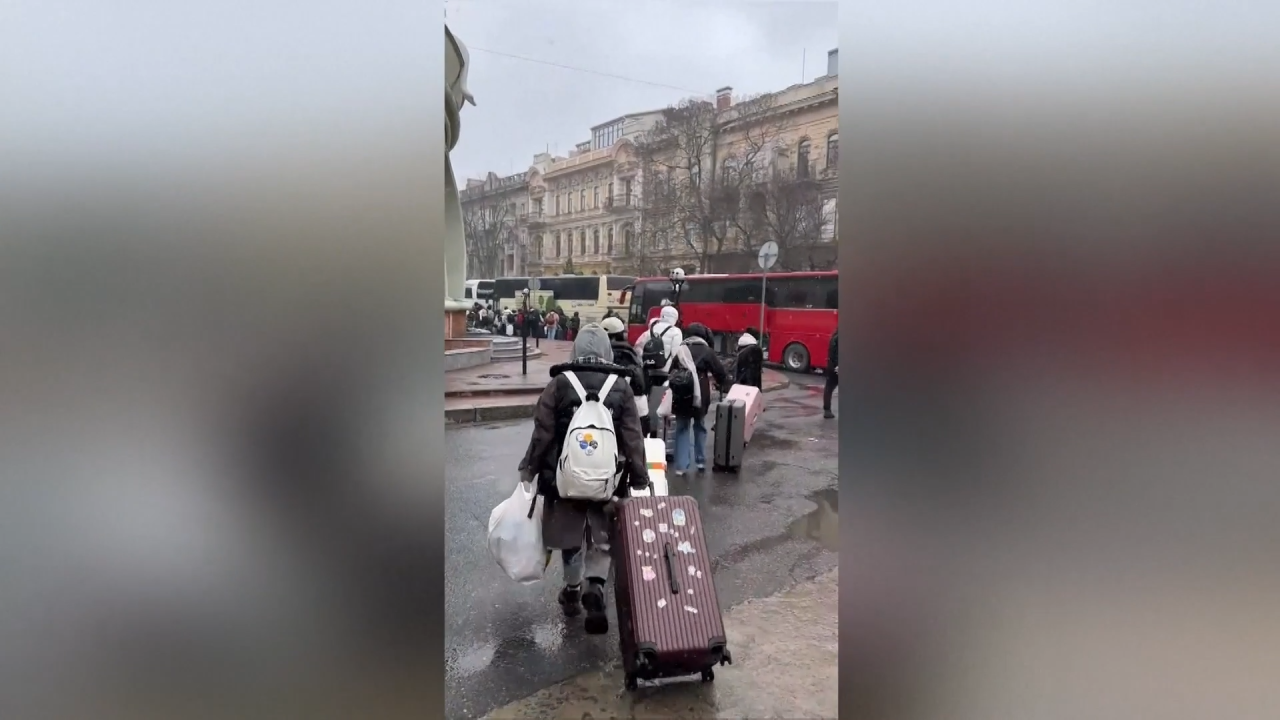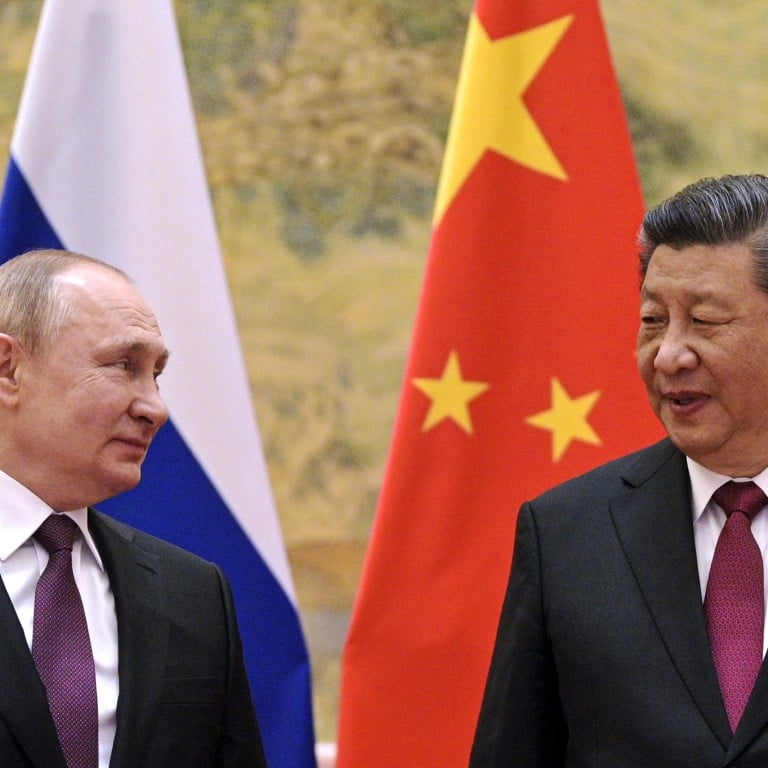
China’s links to Russia leave it exposed as Ukraine attack backfires, experts say
- China scrambles to defend support of Russia’s Ukraine invasion, given Beijing’s long-standing promotion of ‘non-interference in other nations’ internal affairs’
- The backing also threatens years of China’s patient building of global goodwill and economic footprint, including Belt and Road Initiative projects in Ukraine
“It’s backfired,” said Kevin Nealer, a previous member of the President’s Intelligence Advisory Board. “It’s tested, in its nascent stages, the idea of an autocrats club in arenas that matter most to the legitimacy of the Chinese government – economic confidence and stability, delivering the goods on solid growth and being seen as a leader in the Indo-Pacific region.”
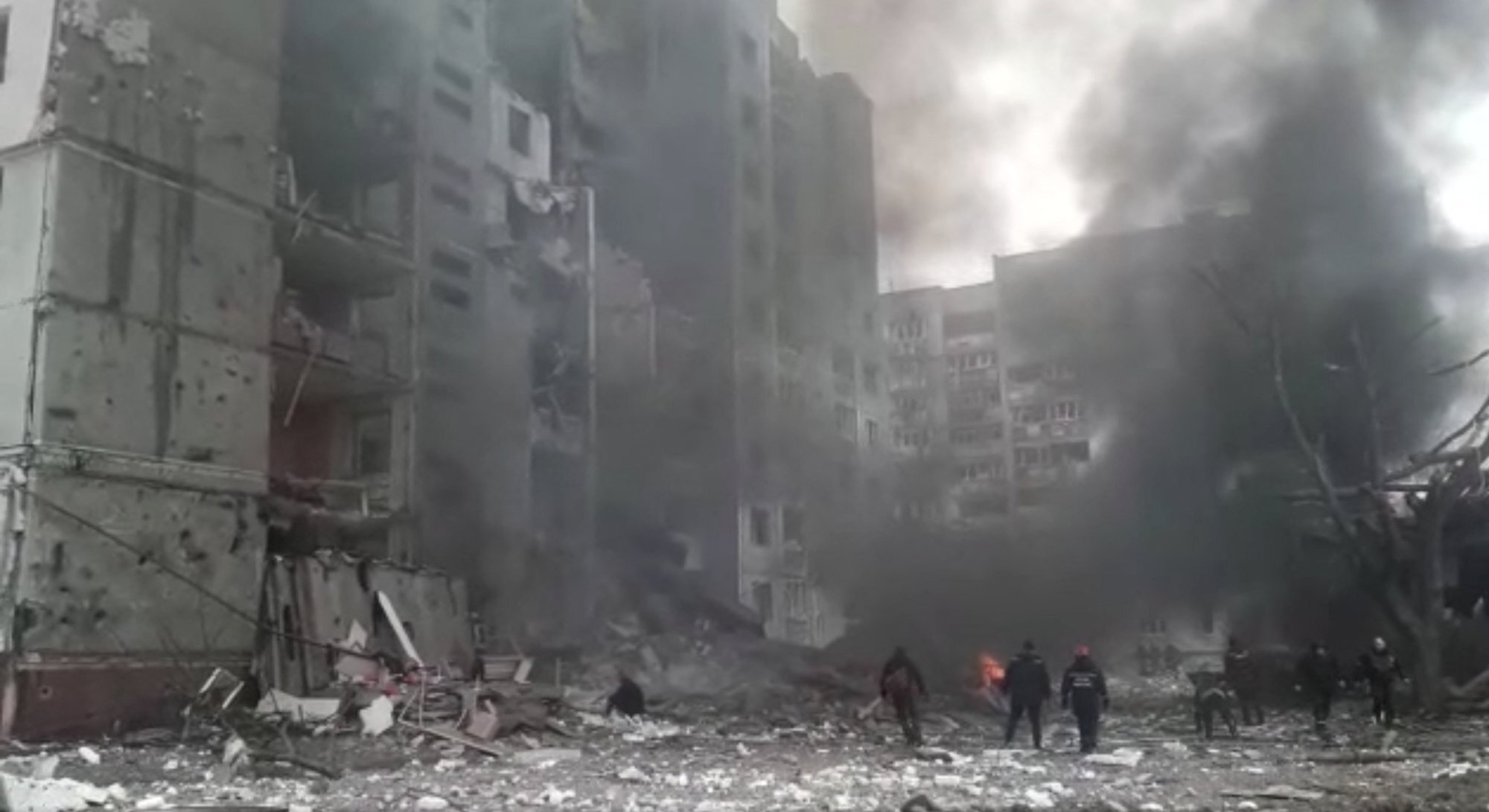
Within days of Putin’s order sending tens of thousands of troops into Ukraine, the North Atlantic Treaty Organization closed ranks, deploying thousands of troops to bolster member states that border Ukraine.
The European Union also agreed to send lethal defensive weapons to Ukraine as did Germany, both historic firsts. Washington pledged US$350 million in military assistance in addition to the US$1 billion it gave Ukraine over the past year to counter Russia.
The premise behind Putin’s apparent gamble – and explicit statements by Beijing and Moscow – was that democracies are divided, weak and indecisive and the global liberal order obsolete. In a joint declaration made before the start of the Beijing Winter Olympics – and shortly before the invasion – Russia and China announced a new “no limits” alliance.
I think this is really going to, in the long term, blow up in Beijing’s face
They have had lots of fodder for that argument, including the January 6, 2021, attack on the US Capitol, Brexit and the increase in deepening electoral divides more broadly.
“There’s been a wishful prediction that the West is on the decline and is crumbling. This is a clear demonstration that, in the face of a strong challenge, there’s not only not weakness but clear strength,” said Jeffrey Moon, a former US consul general in Chengdu who has also served on the White House’s National Security Council.
Outwardly, China has stood by Russia, blaming the US for instigating the crisis, restating its long-standing opposition to sanctions and calling on all sides to find a diplomatic solution.
But Beijing has found itself on the hot seat trying to defend that support given its long-standing promotion of “non-interference in other nations’ internal affairs” and growing scrutiny over whether it will help Russia evade sanctions – potentially subjecting itself to secondary sanctions.
And unfavourable comparisons between Ukraine and Taiwan, which China considers a renegade province to be reunified by force if necessary, has bolstered US Congressional support for more weapons sales to Taipei and high-level meetings with officials there.
These are still early days of the Ukraine invasion, and analysts stress that a lot will depend on the conflict’s length and devastation. And, while the invasion is of another order of magnitude, they note that grudging acceptance internationally came eventually following both Russia’s 2014 seizure of Ukraine’s Crimea region and Beijing’s island building in the South China Sea.
“I think this is really going to, in the long term, blow up in Beijing’s face,” said Jude Blanchette, China chair at the Centre for Strategic and International Studies. “But, again, a lot of this remains to be seen and will depend on how things play out over the next sort of hours, days, weeks.”
Whether President Xi Jinping knew about Putin’s invasion plans in advance – which a US security report alleges but Beijing denies as “blame shifting” – China’s association with Moscow is attracting unwelcome collateral damage and global scrutiny for Beijing, analysts said.
Told of Ukraine move, China asked Russia to wait until Olympics ended: sources
Domestically, the crisis threatens to increase unemployment, energy and food prices in an important political year and an already wobbly economy. Efforts to rescue thousands of Chinese nationals from Ukraine is a distraction from the Communist Party’s main priorities – next week’s National People’s Congress, fighting Covid-19 and ensuring social stability ahead of Xi’s expected third term at the autumn Party Congress.
Overseas, the invasion jeopardises years of China’s patiently expanding economic footprint, including Belt and Road Initiative projects in Ukraine and its ambitious China-Europe rail network.
“How is this going to affect the EU-China Investment Agreement, further BRI issues, investments in ports and airfields – when China is prepared to support a full-scale invasion of a sovereign country?” asked Moon, president of consultancy China Moon Strategies.
Democracies typically on the geopolitical fence, and presumably more persuadable to Beijing’s view – including Switzerland, Sweden, Norway and South Korea – have joined in condemning Russia and supporting sanctions.
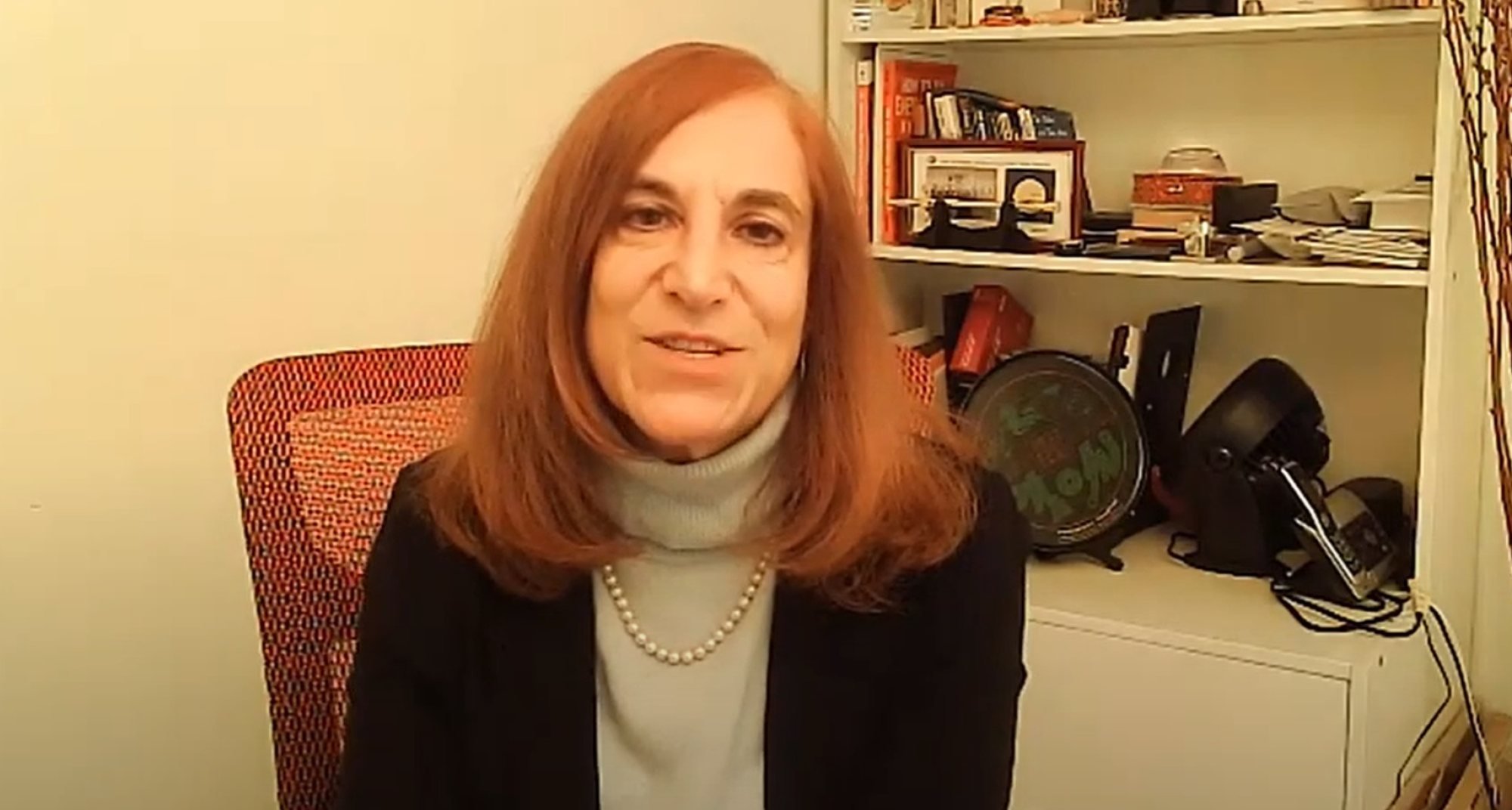
Similarly, in the Asia Pacific, China’s backyard, “you’re seeing real limits on the upsides of cooperating with Russia”, Nealer said.
“If you’re the Thais, Indonesians, Malaysians, you’re being reminded what the worst excesses of an aggressive autocratic regime looks like. When they look at Putin, is this what it’s about? When you fail with the charm offensive, is this what you get?”
The attention has also led to unflattering comparisons between Putin’s shocking invasion and China’s more nuanced strategy of incremental confidence building and economic carrots to reshape the global system and put a competent face on authoritarianism.
“To say that Ukraine is a distraction is an understatement. It is not what makes the motor run in China,” said Nealer, now a principal at the Scowcroft Group. “Ukraine is testing the limits of this new bipolar world where the US and its allies are lined up against two great autocratic powers.”
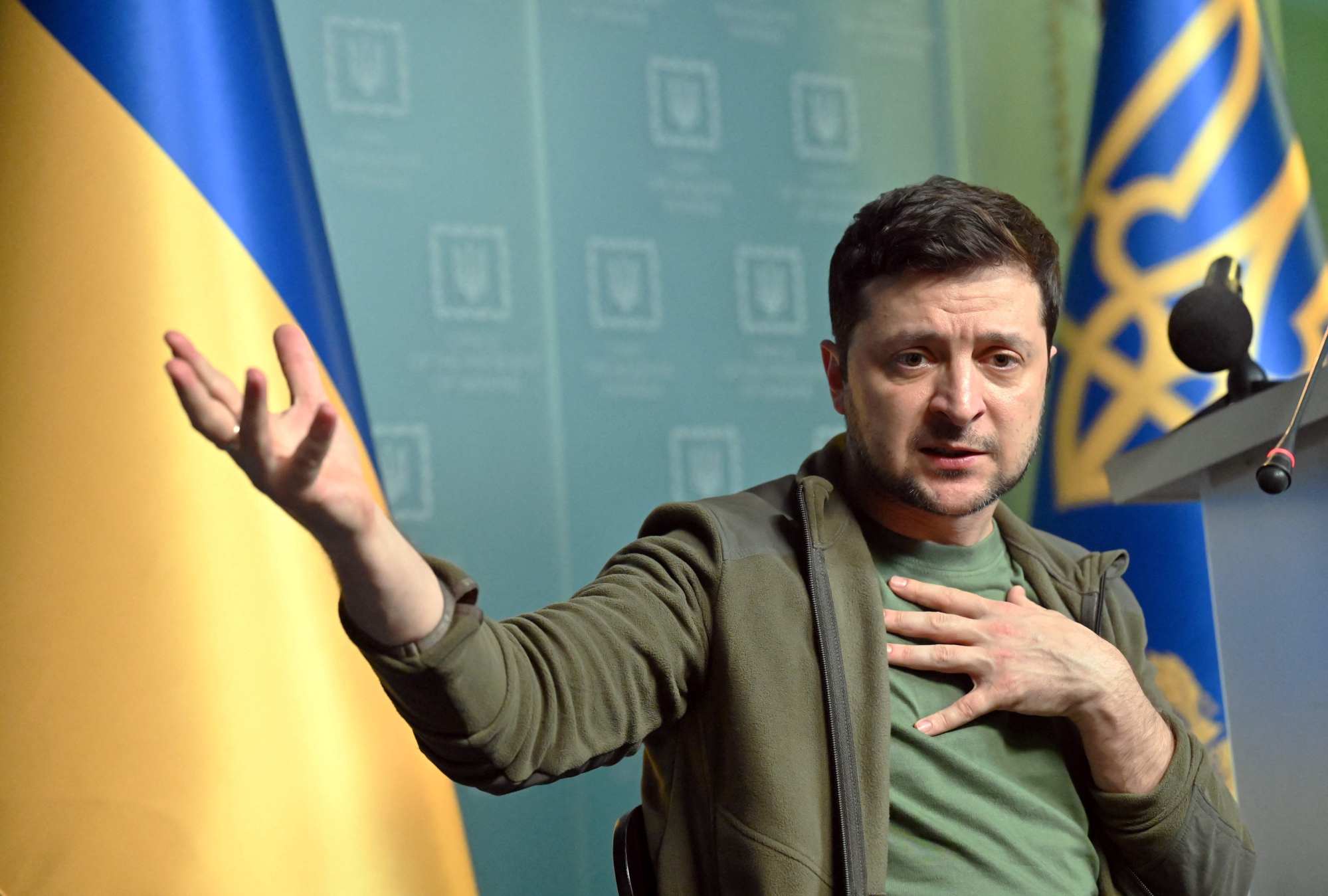
The bad optics are underscored by news of Russian shells killing civilians and hitting apartment blocs and Holocaust memorials, amid signs that Putin may not back down any time soon – contrasted with the global appeal of Ukrainian President Volodymyr Zelensky risking his life on the front lines.
“Another known unknown for Beijing would be the role of leadership,” Blanchette said. “Zelensky, the sort of the courage and heroism he has shown, arguably tipped the balance in terms of EU sanctions just over the matter of a couple days.”
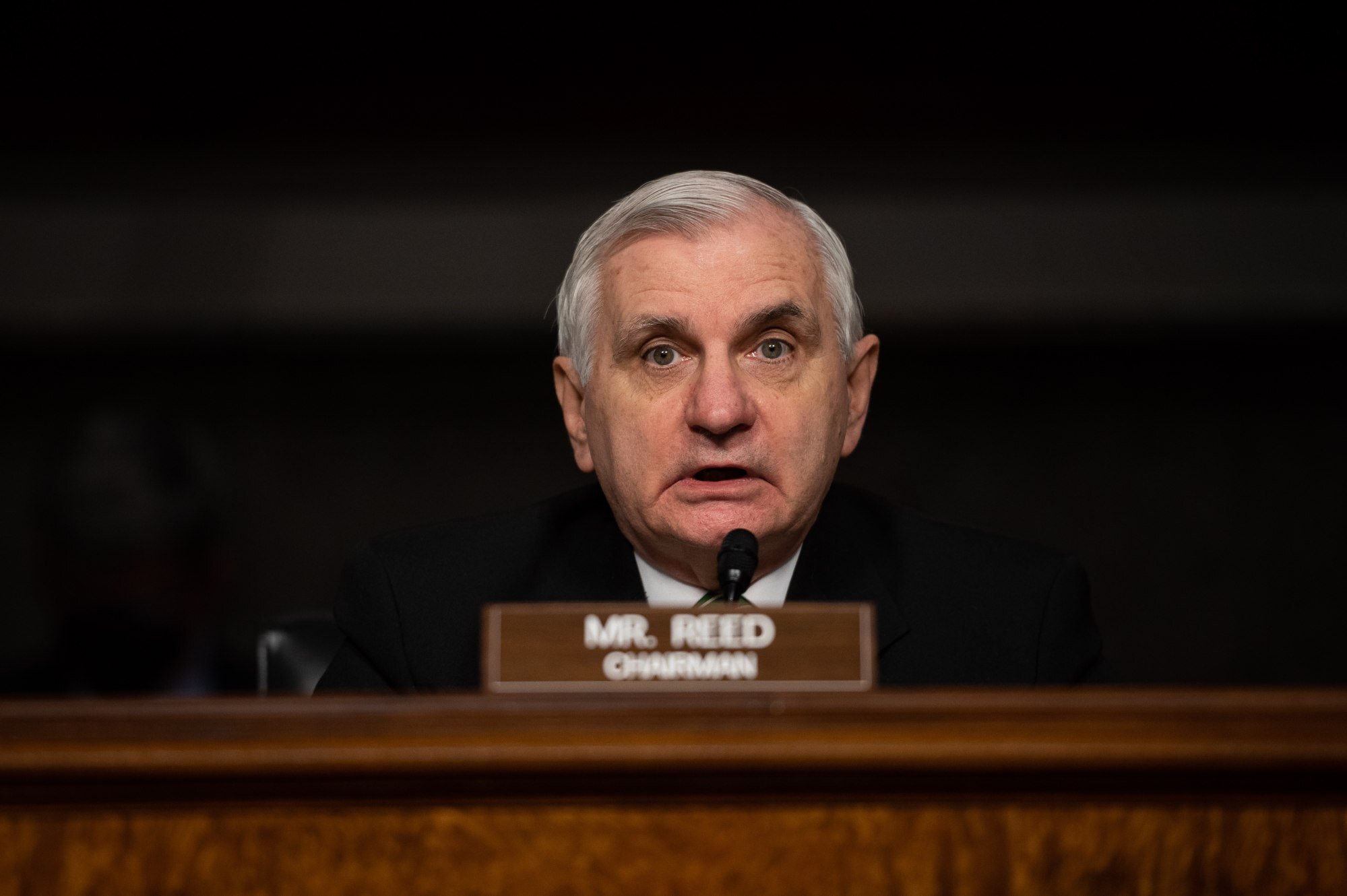
“If Putin thought his war would weaken Nato and the international community, he is badly mistaken. The United States and our allies around the globe have rallied together in a way not seen in generations,” said Senator Jack Reed, the Rhode Island Democrat who chairs the Armed Services Committee.
“China is watching how the democratic nations of the world respond to Russia,” Reed noted. “In considering a potential invasion of Taiwan, President Xi is scrutinising Putin’s playbook and the international response. I suspect he may not like what he sees.”


